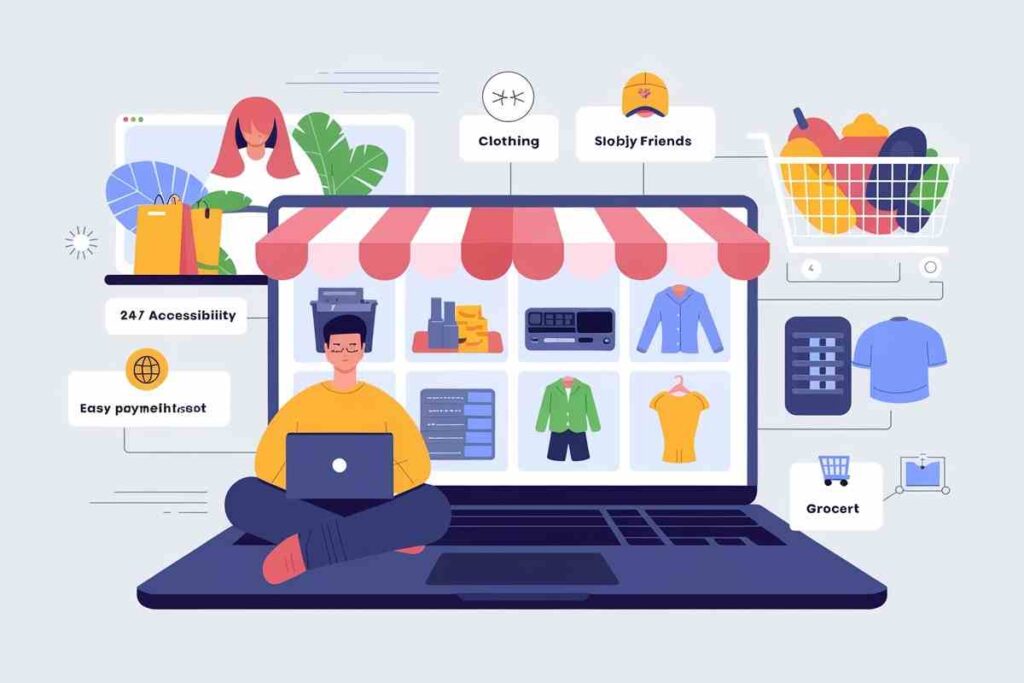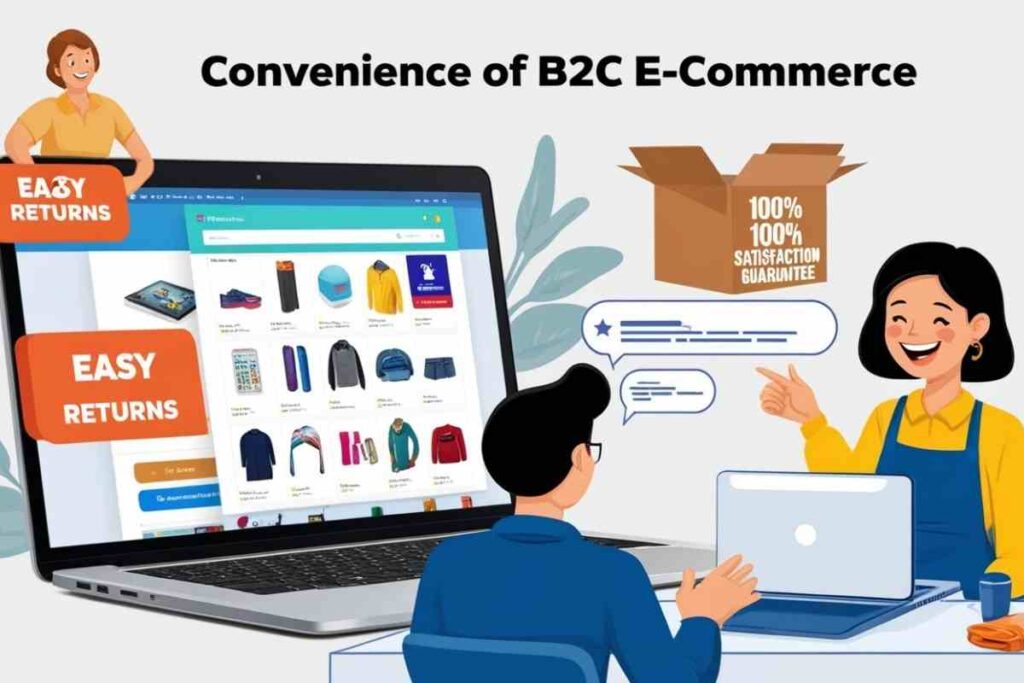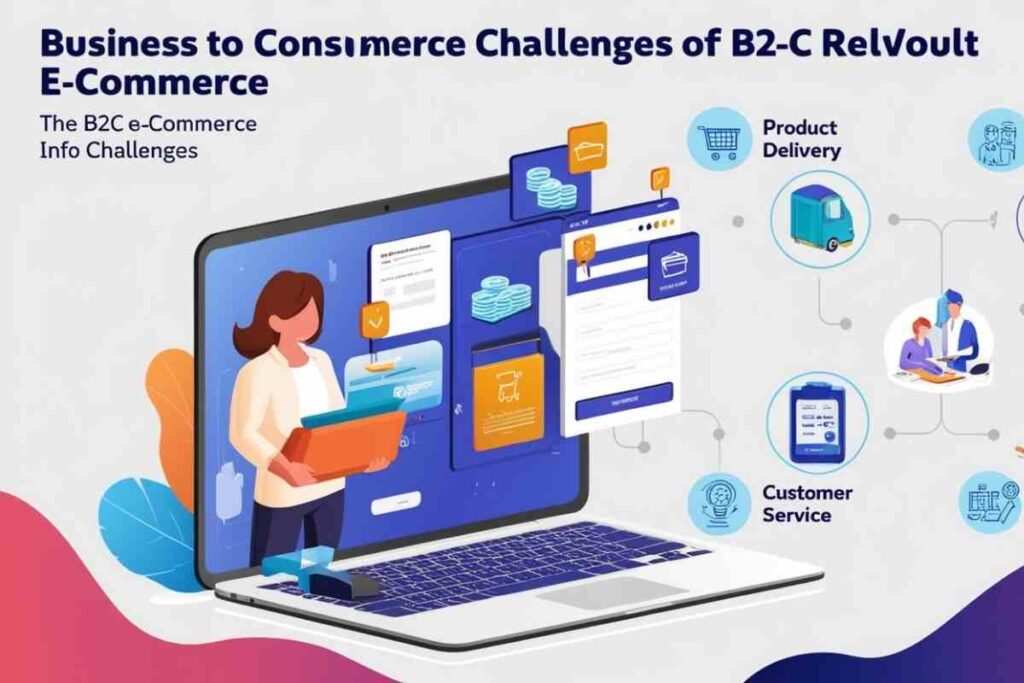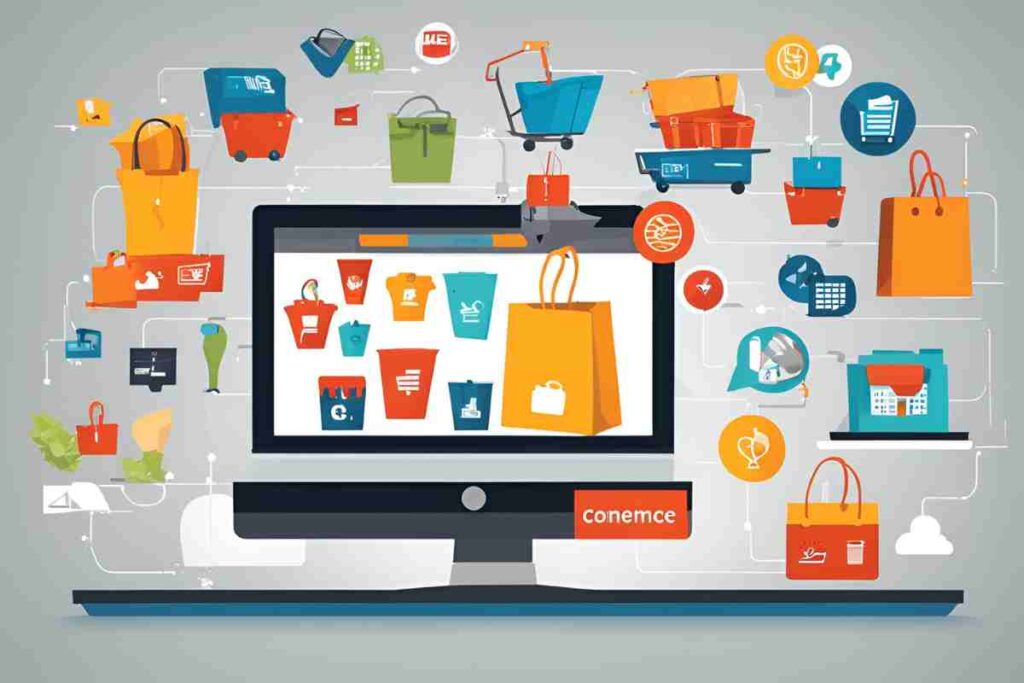In today’s digital world, the convenience of Business to Consumer (B2C) e-commerce has transformed the way businesses and consumers interact.
With just a few clicks, consumers can access a wide range of products, services, and experiences directly from their homes, without stepping foot into a physical store. But why is Business to Consumer e commerce convenient?
Let’s dive deeper into this question, highlighting the benefits, challenges, and future trends that make B2C e-commerce a game-changer in the retail landscape.
Understanding: Why Is Business to Consumer E-Commerce Convenient

B2C e-commerce refers to the process where businesses sell goods or services directly to individual consumers, typically through an online store. The model has gained massive popularity due to its convenience, flexibility, and user-friendly features.
Unlike traditional brick-and-mortar stores, B2C e-commerce allows consumers to shop from anywhere at any time, offering a seamless and personalized experience.
Key Reasons Why Business to Consumer E-Commerce Is Convenient

24/7 Accessibility: Shop Anytime, Anywhere
One of the primary advantages of B2C e-commerce convenience is the ability to shop at any time, from anywhere.
Traditional stores have fixed hours, but with e-commerce, the store is always open, allowing consumers to browse and purchase products at their convenience.
Whether it’s midnight or early morning, e-commerce platforms remain accessible on various devices, including smartphones, tablets, and laptops.
This flexibility eliminates the constraints of physical store hours and locations, making it easier for consumers to shop when it suits them best.
Wider Range of Products
B2C e-commerce stores are not limited by the physical space that brick-and-mortar stores must contend with.
As a result, online retailers can offer a much broader selection of products compared to traditional stores. Consumers can easily compare a wide variety of brands, sizes, colors, and models, all in one place.
This wide selection enables consumers to find exactly what they need—from niche products like tiny house for sale georgia to popular mainstream items—without the need to visit multiple vendors.
Convenient Payment and Checkout Options
Another reason B2C e-commerce is convenient is the wide variety of payment methods that are available to consumers.
E-commerce platforms support multiple payment options, including credit cards, digital wallets (like PayPal, Apple Pay), and even cryptocurrencies in some cases.
With one-click checkout and stored payment details, consumers can complete their transactions quickly and securely without needing to repeatedly enter their information.
Additionally, e-commerce platforms often offer subscription services, making repeat purchases even more convenient.
Personalized Shopping Experience
B2C e-commerce stores often leverage consumer data to create a personalized shopping experience. By tracking browsing history, purchase behavior, and preferences, e-commerce platforms can recommend products tailored to individual tastes.
This level of personalization not only saves time for the consumer but also enhances the overall shopping experience.
Consumers enjoy the personalized recommendations, discounts, and offers that are presented to them based on their interests, which makes shopping online even more convenient.
Time-Saving: Avoid Crowds and Long Lines
For many, the idea of shopping in crowded malls or standing in long checkout lines can be a stressful experience.
B2C e-commerce eliminates the need to deal with these crowds, allowing consumers to shop at their own pace. With just a few clicks, the purchase is made, and the products are either shipped directly to the consumer’s home or available for pick-up at a local store.
This significant time-saving aspect makes B2C e-commerce an attractive option for busy individuals, offering them an efficient and hassle-free shopping experience.
Global Reach and Access to Products Worldwide
E-commerce platforms are not bound by geographic limitations, enabling consumers to shop for products from different parts of the world. B2C e-commerce offers global reach, allowing businesses to sell to consumers in various countries and regions.
Consumers benefit from this global access, as they can purchase unique products or brands that may not be available in their local markets.
For example, consumers in one country can order products from international brands with ease, further increasing the convenience of e-commerce.
Better Customer Support and Easy Returns
B2C e-commerce platforms often offer robust customer service options, including live chat, email support, and help centers, to assist consumers with their inquiries. The ability to quickly resolve issues or get product-related information makes the online shopping experience more efficient.
Moreover, most e-commerce businesses have a straightforward return policy that allows consumers to return products they are not satisfied with. The ability to easily process returns and exchanges online adds to the convenience, as consumers don’t have to visit a physical store to resolve issues.
Cost-Effective Shopping
For businesses, B2C e-commerce allows for the elimination of overhead costs like store rentals, staff salaries, and utilities. As a result, many e-commerce retailers can offer competitive prices and discounts, making shopping more affordable for consumers.
Additionally, online shoppers can access exclusive online deals and seasonal sales, giving them the opportunity to save money while purchasing from the comfort of their homes.
Easy Product Comparison and Reviews
Online shopping allows consumers to compare products quickly, checking different features, prices, and customer reviews. Product comparison tools and search filters on e-commerce websites help consumers make well-informed decisions.
Customer reviews play a crucial role in e-commerce, providing valuable insights from other buyers. By reading reviews, consumers can gauge the quality, functionality, and suitability of a product, which helps to reduce buyer’s remorse and makes the shopping experience more convenient.
Innovative Delivery and Tracking Options
E-commerce businesses provide innovative delivery options, such as express shipping, same-day delivery, and even subscription-based delivery services. Consumers can track their orders in real-time, reducing anxiety and ensuring they know exactly when their products will arrive.
This level of transparency and speed adds another layer of convenience, allowing consumers to manage their expectations and plan accordingly.
Why Is Business to Consumer E Commerce Convenient : Challenges

Despite its many benefits, B2C e-commerce is not without its challenges. Some of the obstacles include:
- Competition: The online marketplace is crowded, making it difficult for businesses to stand out.
- Logistics and Fulfillment: Managing shipping, handling returns, and ensuring timely delivery can be tricky for e-commerce businesses, particularly for international shipments.
- Customer Acquisition Costs: The cost of attracting new customers through paid advertising or promotional offers can be high.
However, as businesses continue to innovate and adapt, these challenges are becoming easier to manage, further solidifying the convenience of B2C e-commerce for both businesses and consumers.
Conclusion: The Future of Convenient B2C E-Commerce
So, why is business to consumer e-commerce convenient? The ability to shop from anywhere, at any time, combined with a personalized shopping experience, global reach, and a wide selection of products, makes it incredibly appealing to modern consumers.
As e-commerce technology continues to evolve, we can expect even more innovations that will further streamline the shopping experience, making it even more convenient.
For businesses looking to stay competitive, embracing B2C e-commerce is essential. By offering a seamless, user-friendly platform, leveraging customer data, and staying on top of trends, businesses can ensure they provide the best possible experience to their customers, securing long-term success in the e-commerce world.
FAQS
What is B2C e-commerce?
B2C e-commerce refers to the process where businesses sell products or services directly to consumers through an online platform.
How does B2C e-commerce benefit consumers?
B2C e-commerce offers convenience, 24/7 access, a wide range of products, personalized experiences, and fast transactions, making shopping easier.
Is B2C e-commerce secure?
Yes, most B2C platforms use encryption and secure payment gateways to protect customer data and transactions.
How does B2C e-commerce impact businesses?
It allows businesses to reach a global audience, reduces the need for physical stores, and provides data-driven insights for better marketing.
What challenges do businesses face with B2C e-commerce?
Challenges include high competition, logistics and shipping issues, customer service management, and acquiring new customers cost-effectively.
Can B2C e-commerce be mobile-friendly?
Yes, many B2C platforms are optimized for mobile devices, providing a seamless shopping experience across smartphones and tablets.
How does B2C e-commerce personalize the shopping experience?
Platforms use customer data, preferences, and browsing history to recommend relevant products and create customized shopping experiences.
Why is B2C e-commerce growing rapidly?
The growth is driven by consumer demand for convenience, the rise of mobile shopping, and the ability to shop from anywhere, anytime.



